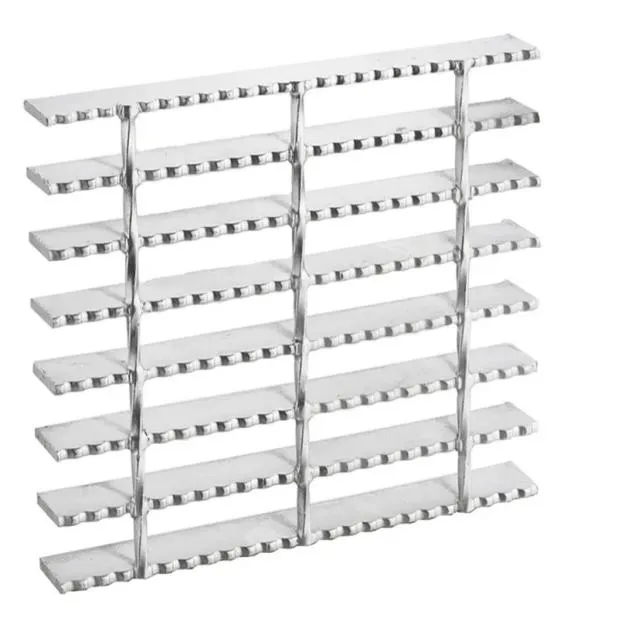- Industrial zone, South of Anping Town, Hengshui, Hebei, China.
- sales@hfpetromesh.com
- +86-18931809706
1 月 . 25, 2025 02:28
Back to list
steel walkway grating
Finding reliable stainless steel grating suppliers involves navigating an ocean of options, but true expertise and discernment can elevate your selection process from merely adequate to exceptional. Experience is key here. Engaging with suppliers who have a proven track record can significantly impact your project's success. Look for companies that have been in the industry for several years, showcasing consistent quality in their product offerings. Not only does this demonstrate their reliability, but it also indicates a level of sophistication in their manufacturing processes and customer service.
Consider customer testimonials as a vital tool in assessing suppliers. Reviews provide insights into others' experiences with the supplier, giving you a preview of what to expect. Look for feedback on product quality, durability, responsiveness to inquiries, and problem-solving abilities. Additionally, suppliers who showcase detailed case studies allow potential clients to understand how their gratings have performed in real-world scenarios, reflecting their commitment to customer satisfaction and continuous improvement. Innovative approaches to sustainability are increasingly important in product selection today. Leading stainless steel grating suppliers recognize the importance of environmentally conscious manufacturing processes. Selecting suppliers that utilize recyclable materials and technologies that minimize carbon footprints not only supports global sustainability efforts but can also contribute to achieving your own project’s green certifications. Finally, the digital footprint of stainless steel grating suppliers can also signal their status in the market. A well-maintained online presence, which includes detailed product descriptions, technical support resources, and easy avenues for customer interaction, offers convenience and showcases their dedication to client-centered service. Access to detailed specifications, material certifications, and even 3D models of grating solutions can greatly simplify the design and procurement process, hence aiding in hassle-free project execution. In conclusion, choosing the right stainless steel grating supplier requires a multi-faceted approach centered on experience, expertise, authority, and trustworthiness. As markets evolve, so too should your criteria for selecting suppliers, ensuring that every aspect—from product performance to ethical practice—is considered, thus optimizing both current projects and future collaborations.


Consider customer testimonials as a vital tool in assessing suppliers. Reviews provide insights into others' experiences with the supplier, giving you a preview of what to expect. Look for feedback on product quality, durability, responsiveness to inquiries, and problem-solving abilities. Additionally, suppliers who showcase detailed case studies allow potential clients to understand how their gratings have performed in real-world scenarios, reflecting their commitment to customer satisfaction and continuous improvement. Innovative approaches to sustainability are increasingly important in product selection today. Leading stainless steel grating suppliers recognize the importance of environmentally conscious manufacturing processes. Selecting suppliers that utilize recyclable materials and technologies that minimize carbon footprints not only supports global sustainability efforts but can also contribute to achieving your own project’s green certifications. Finally, the digital footprint of stainless steel grating suppliers can also signal their status in the market. A well-maintained online presence, which includes detailed product descriptions, technical support resources, and easy avenues for customer interaction, offers convenience and showcases their dedication to client-centered service. Access to detailed specifications, material certifications, and even 3D models of grating solutions can greatly simplify the design and procurement process, hence aiding in hassle-free project execution. In conclusion, choosing the right stainless steel grating supplier requires a multi-faceted approach centered on experience, expertise, authority, and trustworthiness. As markets evolve, so too should your criteria for selecting suppliers, ensuring that every aspect—from product performance to ethical practice—is considered, thus optimizing both current projects and future collaborations.
Share
Prev:
Next:
Latest news
-
The Power of Pyramid Shaker Screen - A 3-Dimensional SolutionNewsOct.24,2024
-
Exploring the Versatility and Durability of Steel GratingNewsOct.24,2024
-
Revolutionizing Drilling Efficiency with Steel Frame Shaker Screens for Mud Shale ShakersNewsOct.24,2024
-
Potential of Shale Shaker ScreensNewsOct.24,2024
-
Offshore Pipeline Counterweight Welded Mesh - Reinforced Mesh in Marine EngineeringNewsOct.24,2024
-
Revolutionizing Offshore Pipeline Stability with Concrete Weight Coating MeshNewsOct.24,2024
